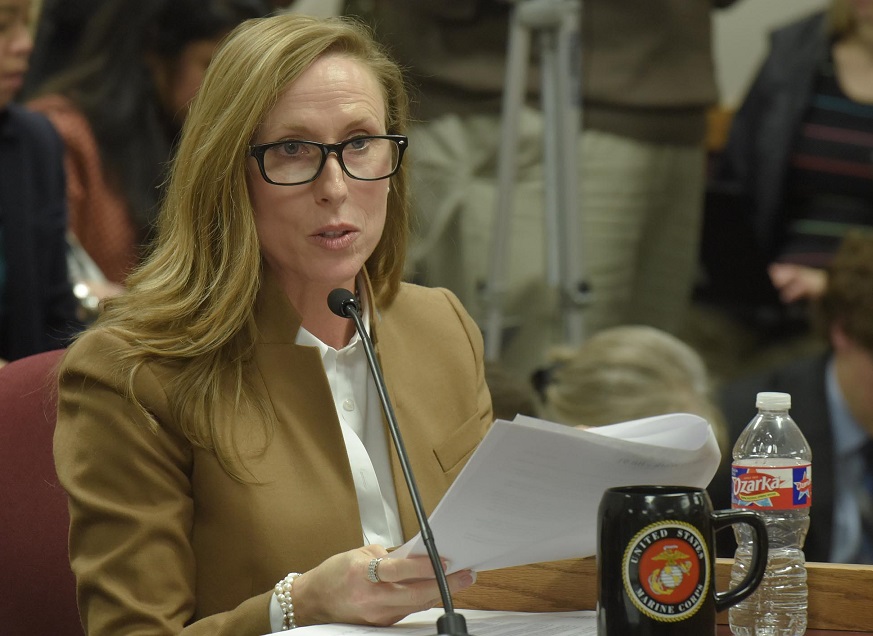A House Committee has endorsed continued operation of programs that offer clean needles to drug abusers.

Those programs aim to get drug users into treatment by introducing them to medical professionals who can consult with them while providing them clean needles. They also fight the spread of diseases like HIV and Hepatitis C, which are often transmitted through the use of dirty needles.
Representative Holly Rehder (R-Sikeston) is carrying the legislation for a third straight year. She said such programs operate in Missouri now, including one in St. Louis County and one that has been operating for decades in Kansas City, but they are technically in violation of state laws against distributing drug paraphernalia.
“We do not want to create a scenario of increasing drug use. In fact, syringe access programs have been found to cause a 13-percent reduction in use. They play a very large role in the referral for treatment. They’ve also been found to decrease needle sharing by 20-percent,” Rehder told the House Committee on Health and Mental Health Policy.
The top Democrat on the committee, Representative Doug Clemens (D-St. Ann), said he is enthusiastic about House Bill 1486, and the finding that users who take advantage of needle exchanges are five times more likely to enter a drug treatment program.
Chad Sabora has testified to House committees on this proposal for several years. He runs a needle exchange program in Missouri. He is also a former Chicago prosecuting attorney who has been clean from a heroin addiction since 2011. He said the way society treats drug abusers now could be described as, “negligence and malpractice.”
Bill Kraemer of St. Genevieve testified in favor of the bill. He told of finding his daughter dead on a basement floor of an overdose. He managed to revive her and she recovered, and today is 2.5 years clean and just had a baby girl.
He said he learned through his experience with her that drug users will resort to dirty needles if they must.
Kraemer and representatives on the Committee said they hope needle exchanges will spread to rural parts of the state, because it is needed there at least as much as in Missouri’s urban centers.
Rehder and other proponents of the programs say their ability to combat the spread of diseases is particularly important now. Missouri is on the verge of a crisis in the spread of HIV and Hepatitis-C, mostly among drug users who are sharing needles.
The proposed change would cost Missouri nothing as these programs are privately funded. Rehder said the legislation could actually save the state some of the cost it has expended to treat drug abusers.
In each of the last two sessions the House has passed needle exchange legislation by sizable, bipartisan votes, but it has stalled in the Senate. HB 1486 has been approved by one House committee and is awaiting a hearing by a second.
